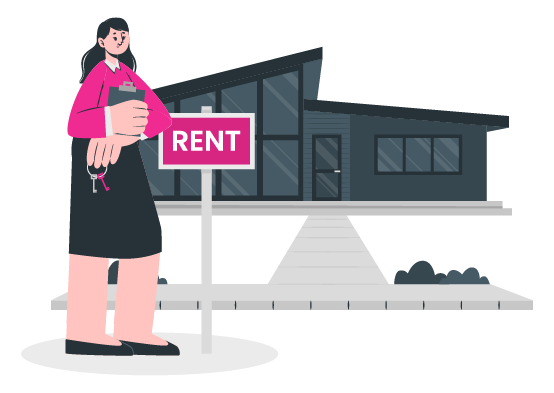If you are navigating the Irish rental market and need long-term support, understanding the Rental Accommodation Scheme Ireland offers is essential. Known simply as RAS, this initiative plays a vital role in the country’s efforts to provide stable and affordable housing for individuals and families with lasting accommodation needs.
This article will explore how RAS operates, who qualifies, and how it compares with other housing schemes. Whether you are a tenant, landlord or simply researching your options, this guide will help you understand how RAS works in Ireland and how it might be the support you need.
What is the Rental Accommodation Scheme
The Rental Accommodation Scheme is a government-backed housing support initiative managed by local authorities. It is designed for individuals who have been receiving Rent Supplement for more than 18 months and who have a long-term housing requirement.
Unlike temporary support systems, RAS is more structured and offers greater security. Under the scheme, the local authority arranges accommodation for the tenant by entering into a contract with a private landlord. The tenant pays a subsidised rent to the local authority based on their income, while the authority ensures regular payments to the landlord.
This arrangement not only guarantees landlords a steady income but also gives tenants more stability and protection under a formal lease.
How RAS Works in Ireland
The process behind how RAS works in Ireland is straightforward, yet impactful. Here is how the scheme functions
1. Eligibility and Referral
To be considered for the scheme, tenants must have been receiving Rent Supplement for more than 18 months and be assessed as having a long-term housing need. They must also be registered with their local authority for housing support.
2. Property Sourcing and Approval
Once deemed eligible, the local authority works to source a suitable property. In some cases, a tenant may find a property themselves and propose it for inclusion, provided the landlord is willing to participate and the property meets the required standards.
3. Landlord Agreement
If a landlord agrees to the terms of the Rental Accommodation Scheme, they sign a contract with the local authority, usually lasting from four to ten years. During this period, the local authority pays the rent directly to the landlord, offering a level of financial security that is often appealing.
4. Tenant Lease and Contribution
The tenant signs a standard tenancy agreement and pays a differential rent to the local authority. This rent is calculated based on the tenant’s income, making the arrangement both affordable and predictable.
5. Ongoing Support and Inspections
RAS properties are subject to regular inspections by the local authority to ensure they comply with housing standards. Tenants may also receive ongoing support in terms of tenancy management and any housing-related issues.
Key Features of the Rental Accommodation Scheme
Understanding the defining aspects of RAS housing support Ireland offers can help tenants and landlords evaluate its suitability. Here are the key features of the scheme
Security of Tenure
Tenants enjoy more stability under RAS compared to Rent Supplement, as they are not reliant on short-term financial aid.
Guaranteed Payments to Landlords
Landlords receive rent payments directly from the local authority, providing consistency and reducing the risk of arrears.
Quality Assurance
Properties must meet minimum standards, ensuring tenants live in safe and healthy conditions.
Income-Based Rent Contribution
Tenants only pay what they can afford, based on a clearly calculated formula linked to their earnings.
Long-Term Contracts
Agreements typically span several years, reducing turnover and creating more stable housing environments.
Who is Eligible for RAS
RAS is designed for individuals or families who meet specific criteria
- They have been in receipt of Rent Supplement for over 18 months
- They have a long-term housing need
- They are listed on the local authority housing waiting list
- Their income and family circumstances fall within the required thresholds
The scheme is particularly useful for those who are in limbo between temporary support and social housing allocation, offering a practical alternative while awaiting a more permanent solution.
How RAS Compares to Other Housing Schemes
Ireland offers several housing supports, and understanding how RAS housing support Ireland differs from others can help you choose the right path
RAS vs HAP (Housing Assistance Payment)
While both support long-term housing needs, HAP gives tenants more flexibility to find their own accommodation. RAS, on the other hand, involves direct contracts between landlords and the local authority, offering more security but less personal choice.
RAS vs Rent Supplement
Rent Supplement is typically short-term and can be affected by changes in income or employment. RAS provides a longer-term solution with fixed conditions, making it better suited for people who need stable support.
RAS vs Social Housing
Social housing involves accommodation directly provided or managed by the state or housing bodies. RAS relies on the private rental market, which makes it quicker to implement in many cases, though not as permanent.
Landlord Benefits Under the Rental Accommodation Scheme
It is not just tenants who benefit from the scheme. Landlords also find value in participating
- Guaranteed rent from local authorities, often with fewer vacancies
- No collection hassle, as payments are made directly
- Long-term lease agreements that reduce tenant turnover
- Support from the council in case of disputes or issues
This win-win model encourages more landlords to come forward, increasing the pool of available homes under the scheme.
Challenges and Considerations
While RAS has many benefits, it is not without challenges
- Tenants have less flexibility to change properties
- Some landlords may be hesitant due to inspections and compliance requirements
- Properties must meet strict housing standards, which may involve upfront costs for upgrades
Still, for many tenants and landlords, these are manageable concerns given the overall benefits of stability and support.
How to Apply for the Rental Accommodation Scheme
If you think RAS could be the right option, here is how to begin
- Contact your local authority and request a housing assessment
- Ensure you meet eligibility criteria, including length of time on Rent Supplement
- Discuss available properties or propose one for review
- Submit necessary documents such as income proof, ID, and current rent history
- Wait for approval and begin the leasing process
Each council may have slight differences in process, so it is best to follow their specific guidance or visit FindQo.ie for resources and available properties.
Final Thoughts

The Rental Accommodation Scheme Ireland provides a practical, secure and long-term housing solution for those caught in the gap between short-term rent support and full social housing. By understanding how RAS works in Ireland, you can take steps toward stability and affordability whether you are a tenant looking for support or a landlord seeking consistent income.
Looking for RAS-compliant properties or want to connect with estate agents who understand the process
Visit FindQo.ie today and take the next step in securing long-term, supported accommodation.

